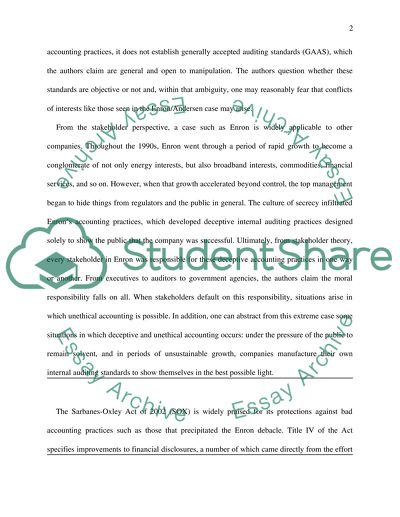Impact of Unethical Behavior Article Analysis Essay. Retrieved from https://studentshare.org/finance-accounting/1431532-impact-of-unethical-behavior-article-analysis
Impact of Unethical Behavior Article Analysis Essay. https://studentshare.org/finance-accounting/1431532-impact-of-unethical-behavior-article-analysis.


